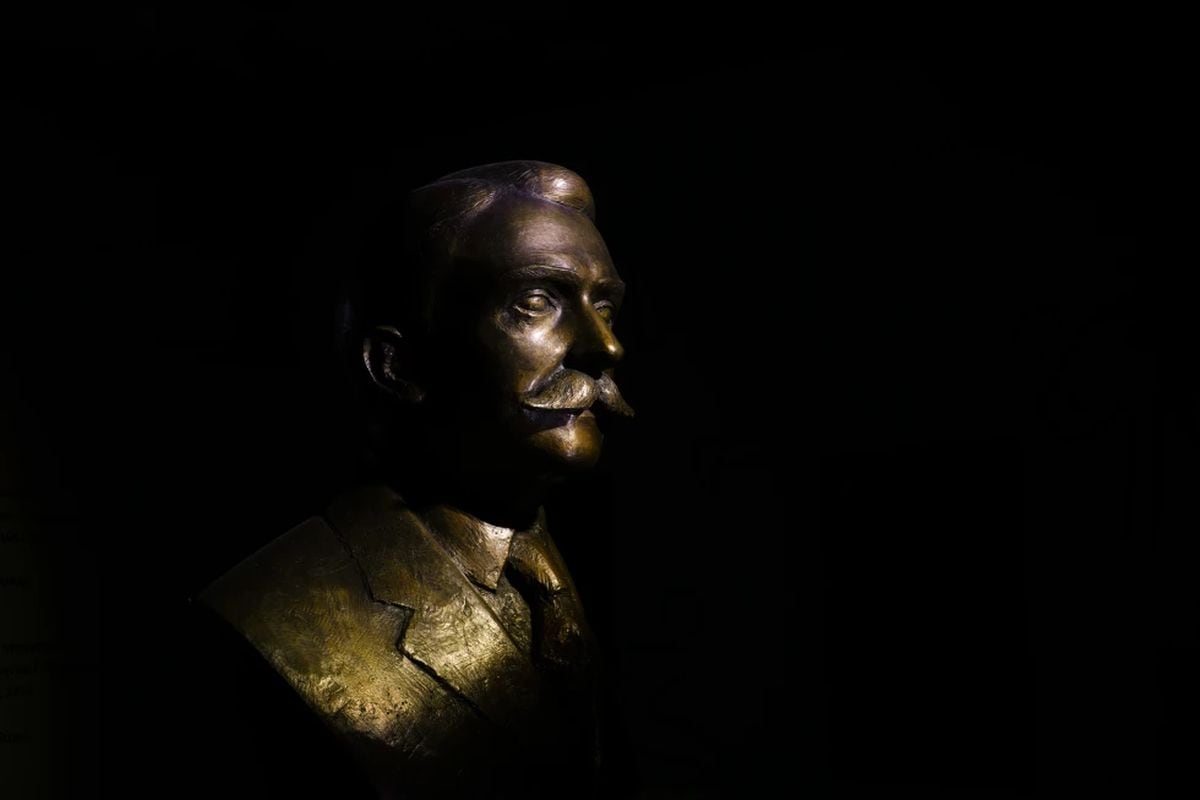
Have you ever wondered why people talk French during the announcement of the medals at the Olympic GamesThe truth is that although the Games originated in ancient times in Greecethe modern incarnation is a practically French subject.
The Games were revived in the 1890s by a French nobleman, Baron Pierre de Coubertin, who has a questionable legacy. As Paris prepares to host the 2024 Olympics, 100 years since it last held them, here’s why so much of the event is quintessentially French.
The efforts of a French nobleman
Born in Paris in 1863, Coubertin dedicated his life to rejuvenating the ancient tradition of Greece. His heart rests in the Coubertin Grove, in Olympia, Greece. Coubertin envisioned the Olympic Games as a pacifist exercise that could foster international cooperation and peace, especially after France’s defeat in the Franco-Prussian War.
The modern Olympic Games were relaunched in Paris at the Sorbonne University in 1894, and for many years, French was the only language. English was added decades later, although French remains the official language.
While the first modern Olympic Games were held in Greece in 1896 to honour its ancient roots, the second Olympiad in 1900 was held in Paris. “At the beginning of the 20th century, France was the artistic and sporting centre of the world”says Patrick Clastres, a sports historian at the University of Lausanne.
Connection between arts and games
Coubertin also believed in the combination between “muscle and mind”, considering the blending of sports and arts as a key part of the Olympic spirit. He was inspired by the ancient Greeks who celebrated both physical and artistic excellence.
Coubertin introduced the arts into the Olympic Games in 1912 with the “Pentathlon of the Muses”competitions in literature, painting, music, sculpture and architecture inspired by athletics.
At Paris 2024, Coubertin’s legacy will be recalled with similar artistic competitions such as the “Pentathlon of Arts” at the Palace of Versailles, and there will be similar initiatives at the National Sports Museum in Nice.
However, some experts question Coubertin’s intentions, considering them less than noble. He introduced the arts into the Olympic Games “with the aim of countering what I thought was the vulgarisation of the Games by American commercialisation”says Clastres. “Baron Pierre de Coubertin”he says, “I was a bit of a snob.”
Questioned figure
Perhaps one reason the French connection to the Olympics isn’t more widely recognized is that its founder is a persona non grata to many. Coubertin’s vision for the Olympics was inherently exclusionary, says Nicolas Bancel, a contemporary historian at the University of Lausanne. For example, he opposed women’s participation.
“He thought women would embarrass the Games”says Bancel.
The most serious accusation against Coubertin, however, was a personal letter he sent to Adolf Hitler praising the Nazi dictator and the Third Reich. Clastres notes that in the letter, Coubertin congratulated Hitler on the 1936 Berlin Olympics.
The association representing the Coubertin family responded that Hitler and Coubertin did not maintain regular correspondence. “The exchanges were through third parties or were limited to a few polite letters,” a spokeswoman for the association wrote in a statement sent to The Associated Press.
France’s soft power
Were the Games a tool for France to gain global influence? France has always been aware of the potential of the Olympic Games as a mechanism of influence, of soft power, probably one of the first modern examples of this concept.
Soft power refers to a country’s ability to influence others through cultural or ideological resources rather than military force.
Clasters noted that the 1924 Paris Games were the first in the modern era to use media and propaganda to project national prestige. The French government used newspapers, radio and even the resources of the armed forces to publicize the Games, establishing the first press center in a stadium.
It may interest you
- Kimberly Garcia, the wanka race walker who seeks Olympic revenge… again
- Looking forward to the Games? A quiz to learn about Olympic history
- The bitter legacy of the Tokyo 2020 Olympics in Japan
Source: Gestion
Ricardo is a renowned author and journalist, known for his exceptional writing on top-news stories. He currently works as a writer at the 247 News Agency, where he is known for his ability to deliver breaking news and insightful analysis on the most pressing issues of the day.











